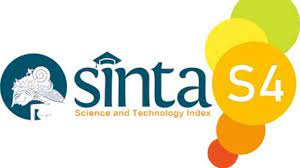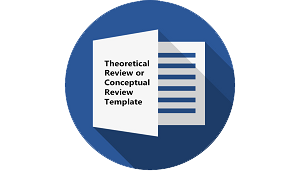Interpersonal Markers of Taylor Swift and Armaya Doremi in Their Graduation Speech
DOI:
https://doi.org/10.30957/ijoltl.v8i3.741Keywords:
graduation speech, interpersonal markers, public speakingAbstract
Public speaking, including presenting a graduation speech, becomes unintentionally complex because it has standardization. Presenting outstanding speeches becomes a challenge for English Foreign Language (EFL) learners, who delegate themselves as public speakers. This research compares graduation speeches by Taylor Swift, a native speaker, and Armaya Doremi, an EFL student. It is to identify the intricate skills that should be mastered in public speaking, namely using discourse markers. The descriptive qualitative method was used to find interpersonal markers used by Taylor Swift and Armaya Doremi. The theory used to analyze the data was the interpersonal marker theory by Ädel (2010). The findings demonstrated that the interpersonal markers used in both graduation speeches were linguistic comments, discourse organization, speech act labels, and references to the audience. Taylor Swift, a native speaker, used all main categories of interpersonal markers and longer interpersonal markers than Armaya Doremi, as an EFL learner. Future researchers are suggested to dig deeper into the topic, particularly concerning interpersonal markers of spontaneous speech in various contexts.
Downloads
References
Ädel, A. (2012). “What I want you to remember is….†English Text Construction, 5(1), 101–127. https://doi.org/10.1075/etc.5.1.06ade
Amalia, R. M., Citraresmana, E., & Saefullah, N. H. (2021). Discourse markers in diplomatic settings: Ministerial dialogue between Australia and Indonesia. Studies in English Language and Education, 8(1), 346–359. https://doi.org/10.24815/siele.v8i1.18350
Arthur, R., & Fenyi, D. A. (2022). Metadiscourse Markers of Hedging In Classroom Interaction A Descriptive Analysis. Technology and Science, 2(3), 288–309. https://globets.org/journal/index.php/IJETS/article/view/53
Azijah, D. P., & Gulö, I. (2020). Interpersonal Metadiscourse Markers In Jacinda Ardern Speech At Christchurch Memorial. Linguistics and Literature Journal, 1(2). http://jim.teknokrat.ac.id/index.php/linguistics_and_literature/index
Black. (2019). Glossophobia (Fear of public speaking): Are you glossophobic? Retrieved 23/01/21 from http://www.psycom.net. Remedy Health Media, LLC.
Creswell. (2009). Determining Validity in Qualitative Inquiry.
Cutting, J., & Fordyce, K. (2020). Joan Cutting, Kenneth Fordyce - Pragmatics; A Resource Book for Students-Routledge. Routledge English Language Introductions.
Damayanti, M. E., & Listyani, L. (2020). An Analysis of Students’ Speaking Anxiety In Academic Speaking Class. ELTR Journal, 4(2), 152–170. https://doi.org/10.37147/eltr.v4i2.70
Daud, A., Ras, F., Novitri, N., & Audia, C. P. (2019). Factors Contributing to Speaking Anxiety: A Case Study of Pre-Service English Teachers. Journal of Educational Sciences, 3(3), 412. https://doi.org/10.31258/jes.3.3.p.412-422
Esmer, E. (2017). Interpersonal Metadiscourse Markers in Turkish Election Rally Speeches Delivered by Pro-Turkish and Pro- Kurdish Leaders. Athens Journal of Social Sciences, 4(4), 367–384. https://doi.org/10.30958/ajss.4-4-2
Farahani, M. V., & Ghane, Z. (2022). Unpacking the function(s) of discourse markers in academic spoken English: a corpus-based study. Australian Journal of Language and Literacy, 45(1), 49–70. https://doi.org/10.1007/s44020-022-00005-3
Firdaus, A., & Shartika, M. (2021). Interpersonal Metadiscourse Markers and Appraisal Use Portrayed In Bbc News Report. http://repository.uin-malang.ac.id/8442/
Ghafarpour, H. (2022). Teaching English Language Journal Interpersonal Discourse Markers in Online vs. Face-to-Face EFL Classes. Teaching English Language, 16(2), 63. https://doi.org/10.22132/TEL.2022.155086
Hariati, P., Pulungan, A. H., & Husein, R. (2020). Illocutionary acts in Jack Ma's inspiring speech at his graduation from the University of Hongkong. Britain international of linguistics arts and education (BIoLAE) Journal, 2(1), 384-394. https://doi.org/10.33258/biolae.v2i1.209
Haselow, A. (2019). Discourse marker sequences: Insights into the serial order of communicative tasks in real-time turn production. Journal of Pragmatics, 146, 1–18. https://doi.org/10.1016/j.pragma.2019.04.003
Hudon, C., St-Cyr Tribble, D., Bravo, G., Hogg, W., Lambert, M., & Poitras, M. E. (2013). Family physician enabling attitudes: A qualitative study of patient perceptions. BMC Family Practice, 14. https://doi.org/10.1186/1471-2296-14-8
Kashiha, H. (2022). Academic lectures versus political speeches: Metadiscourse functions affected by the role of the audience. Journal of Pragmatics, 190, 60–72. https://doi.org/10.1016/j.pragma.2022.01.003
Kuswoyo, H., & Siregar, R. A. (2019). Interpersonal Metadiscourse Markers as Persuasive Strategies in Oral Business Presentation. Lingua Cultura, 13(4), 297. https://doi.org/10.21512/lc.v13i4.5882
Leith, S. (2019). Afraid of public speaking? This is what the experts say. Guardian News & Media Limited or Its Affiliated Companies. https://www.theguardian.com/books/2019/feb/04/public-speaking-sam-leith
Li, Z., & Xu, J. (2020). Reflexive metadiscourse in Chinese and English sociology research article introductions and discussions. Journal of Pragmatics, 159, 47–59. https://doi.org/10.1016/j.pragma.2020.02.003
Matroudy, M., & Ebrahimi, S. F. (2022). Functional Analysis of Reflexive Metadiscourse in Dissertation Defense Sessions. International Journal of Research in English Education. http://ijreeonline.com/article-1-601-fa.html
Mirzaeian, E. (2020). An Intra-cultural Analysis of Interpersonal Metadiscourse Markers Used in Obama and Trump’s Speeches on the Iran Nuclear Deal. Corpus Pragmatics, 4(2), 191–205. https://doi.org/10.1007/s41701-019-00076-7
Öztürk, Y., & DurmuÅŸoÄŸlu Köse, G. (2021). “Well (er) You Know …â€: Discourse Markers in Native and Non-native Spoken English. Corpus Pragmatics, 5(2), 223–242. https://doi.org/10.1007/s41701-020-00095-9
Rasooyar, H., & Hosseini, E. (2019). Investigating interpersonal metadiscourse markers in English M.A. theses: The case of transition markers. Global Journal of Foreign Language Teaching, 9(4), 184–192. https://doi.org/10.18844/gjflt.v9i4.4089
Rezaei, O., Ebrahimi, S. F., & Yazdani, S. (2022). Reflexive Metadiscourse Markers in Academic Interviews: A Frequency and Functional Study. International Journal of Foreign Language Teaching and Research, 10(43), 87–99. https://doi.org/10.30495/jfl.2022.697340
Sukma, B. P. (2017). Interpersonal metadiscourse markers as persuasive strategies in Barack Obama's 2012 campaign speeches. Aksara, 29(2), 283-292.
Tercan, G., & Dikilitaş, K. (n.d.). EFL students’ speaking anxiety: a case from tertiary level students. Journal International Association of Research in Foreign Language Education and Applied Linguistics ELT Research Journal, 2015(1), 16–27. http://www.udead.org.tr/
Tsaousides, T. (2018). Why Are We Scared of Public Speaking? Psychology Today. https://www.psychologytoday.com/intl/blog/smashing-the-brainblocks/201711/why-are-we-scared-of-public-speaking
Yasinta, N. L. P. A. K., Tika, I. K., & Sudana, I. G. P. Interpersonal Metadiscourse Markers in the “Monash Life†Magazine. Humanis, 626. https://doi.org/10.24843/jh.2018.v22.i03.p09
Yüksel, H. G., & Kavanoz, S. (2018). Dimension of Experience: Metadiscourse in the Texts of Novice Non-Native, Novice Native and Expert Native Speaker. Advances in Language and Literary Studies, 9(3), 104. https://doi.org/10.7575/aiac.alls.v.9n.3p.104
Zhang, M. (2019). Exploring Personal Metadiscourse Markers across Speech and Writing Using Cluster Analysis. Journal of Quantitative Linguistics, 26(4), 267–286. https://doi.org/10.1080/09296174.2018.1480856
Downloads
Published
How to Cite
Issue
Section
License
Authors who publish with this journal agree to the following terms:
- Authors retain copyright and grant the journal right of first publication with the work simultaneously licensed under a Creative Commons Attribution-ShareAlike 4.0 International License that allows others to share the work with an acknowledgement of the work's authorship and initial publication in this journal.
- Authors are able to enter into separate, additional contractual arrangements for the non-exclusive distribution of the journal's published version of the work (e.g., post it to an institutional repository or publish it in a book), with an acknowledgement of its initial publication in this journal.
- Authors are permitted and encouraged to post their work online (e.g., in institutional repositories or on their website) prior to and during the submission process, as it can lead to productive exchanges, as well as earlier and greater citation of published work (See The Effect of Open Access).












